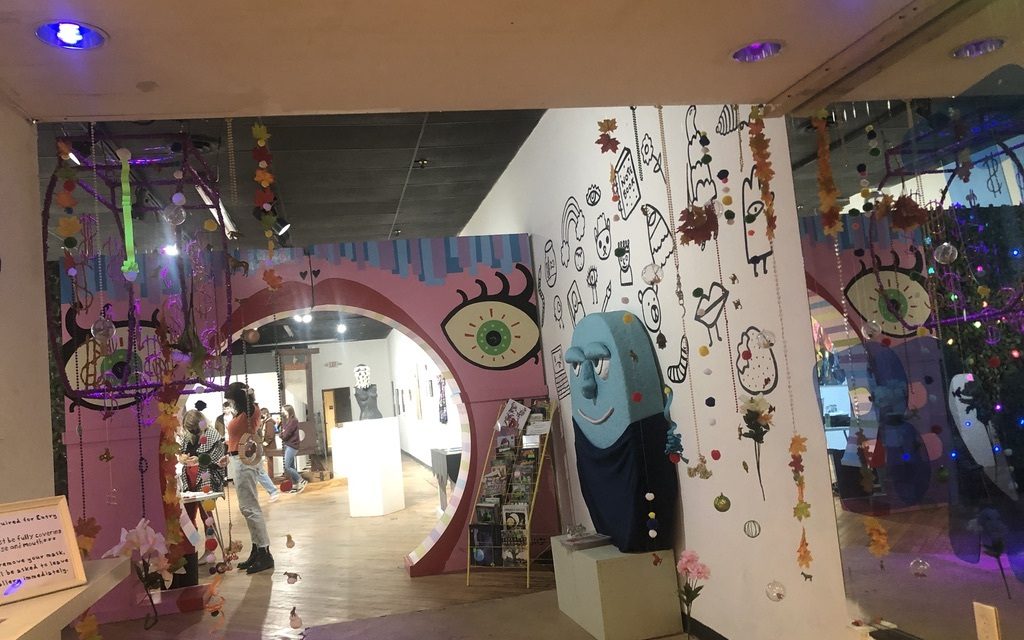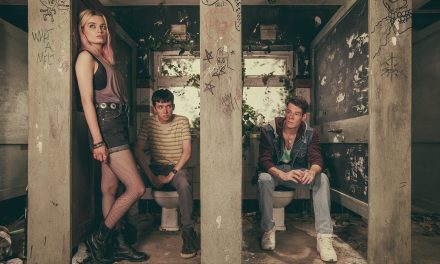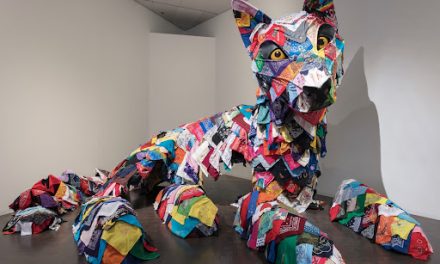When picturing a bakery, I imagine rich aromas drawing in loyal customers, unifying people through a shared love for fresh baked goods. While The Bakery in Atlanta is an arts collective and not an actual bakery, their mission strives to create that same environment, but with art instead of food.
The Bakery was founded in 2017 by mother-daughter duo, Willow H. Goldstein and Olive Hagemeier, as a communal arts complex in an old bakery warehouse. Goldstein and Hagemeier focused heavily on a central DIY ethos, providing community artists space and freedom to work, create and share. The Bakery eventually transformed into a multi-use performing arts studio, hosting a variety of Atlanta’s up-and-coming performers, from drag queens to musicians
Following a forced closure due to the pandemic, The Bakery opened two new spaces in late 2020 for their Studio Residency Program: a safe space for artistic mentorship and creation, available by appointment.
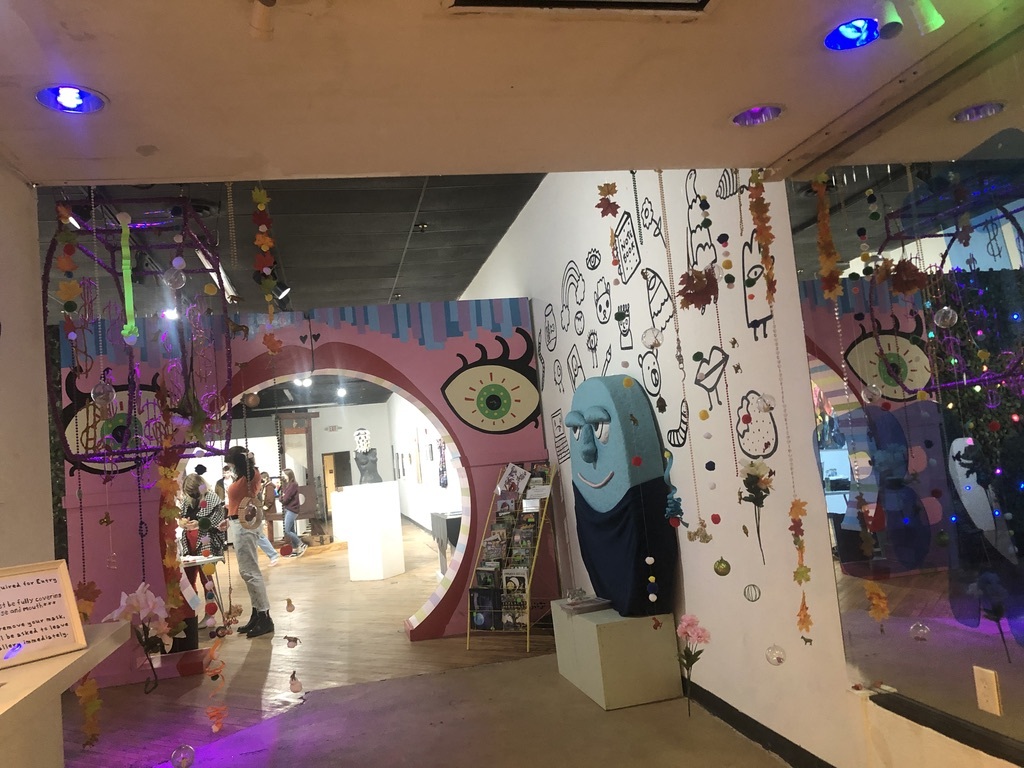
Entrance to The Bakery’s 20/20 Vision exhibition. (The Emory Wheel/Zimra Chickering)
To support local Atlanta artists, The Bakery hosts a monthly exhibition starting with “20/20 Vision: A Multi-Media Retrospective of Atlanta’s Collective Resistance,” which ran from Jan. 28 to Jan. 31. For this exhibition, they put out an open call for any type of artwork dealing with protest movements, isolation, activism and shared struggles of 2020. It was a collective chronicle of the global and personal events that impacted the world over this past year. This type of communal expression is rare to find in art museums and even rarer to find in professional gallery spaces, giving art consumers a true breath of fresh air.
With only five guests allowed in the gallery space at a time, the experience was intimate and the barriers between artist and viewer were completely removed. One of the four core tenants of The Bakery is transparency, which this exhibition represented. The artworks themselves didn’t try to hide behind a fake smile or social media post — as many have done during difficult times — and instead accurately depicted the struggles and triumphs of the past year.
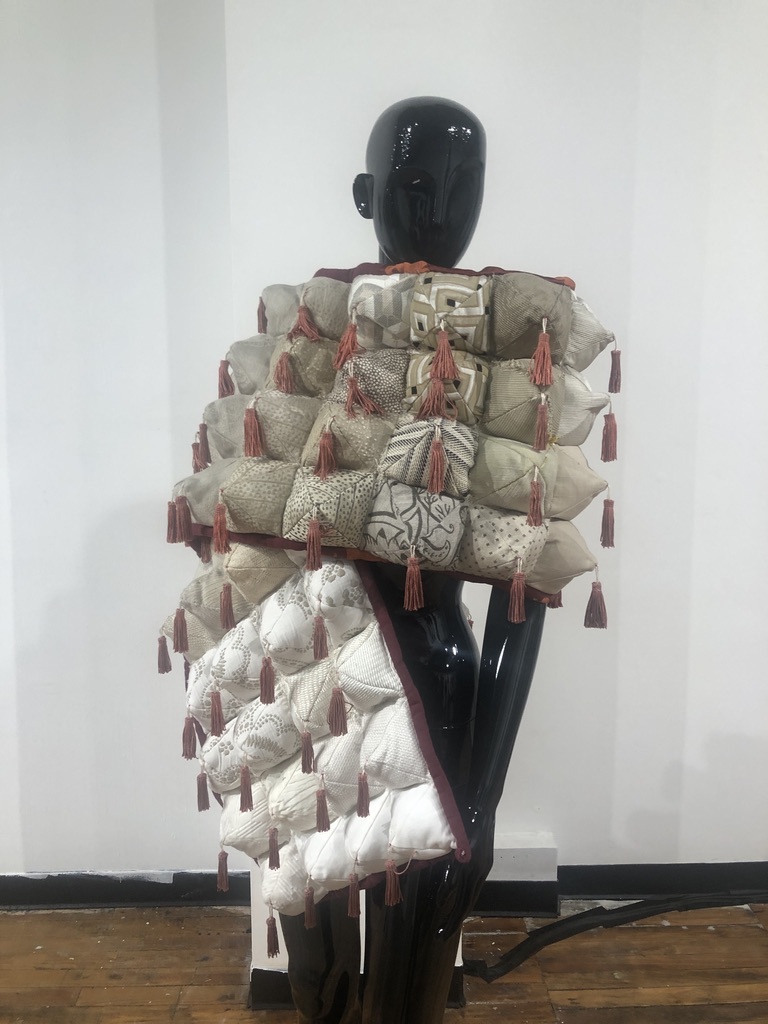
“Wait Under Pyramids” by Emmanuelle Chammah, 2020. (The Emory Wheel/Zimra Chickering)
The featured artworks were a vast array of artistic media and intentions, ranging from a farcical video about selling guillotines to a large oil painting on canvas. The retrospective also beautifully captured all forms of artistic expression and coping mechanisms used throughout the terrible year that was 2020. One of my favorite pieces in the gallery was Emmanuelle Chammah’s “Wait Under Pyramids,” a large cotton scarf designed in the shape of small pyramids with tapestry tassels, stylistically wrapped around a mannequin. Soft and sharp, the scarf embodied a form of Afrofuturism, and it successfully reflected the isolation, fear and vulnerability many have faced in the past year.
Another standout piece was “Santa Lucia, Patron of the Protesters” by Danae Antoine, an Atlanta-based artist involved in the Studio Residency Program led by The Bakery. The artwork dichotomously combined symbols of religious purity with images of protest, emphasizing the ability of the two actions to coexist in harmony. The main figure’s golden halo and clothed head enshroud her thoughtful, concerned expression as her hands form the shape of finger guns pointed in a defensive position. These elements were fluidly combined by Antoine,critically balancing peace and tension.
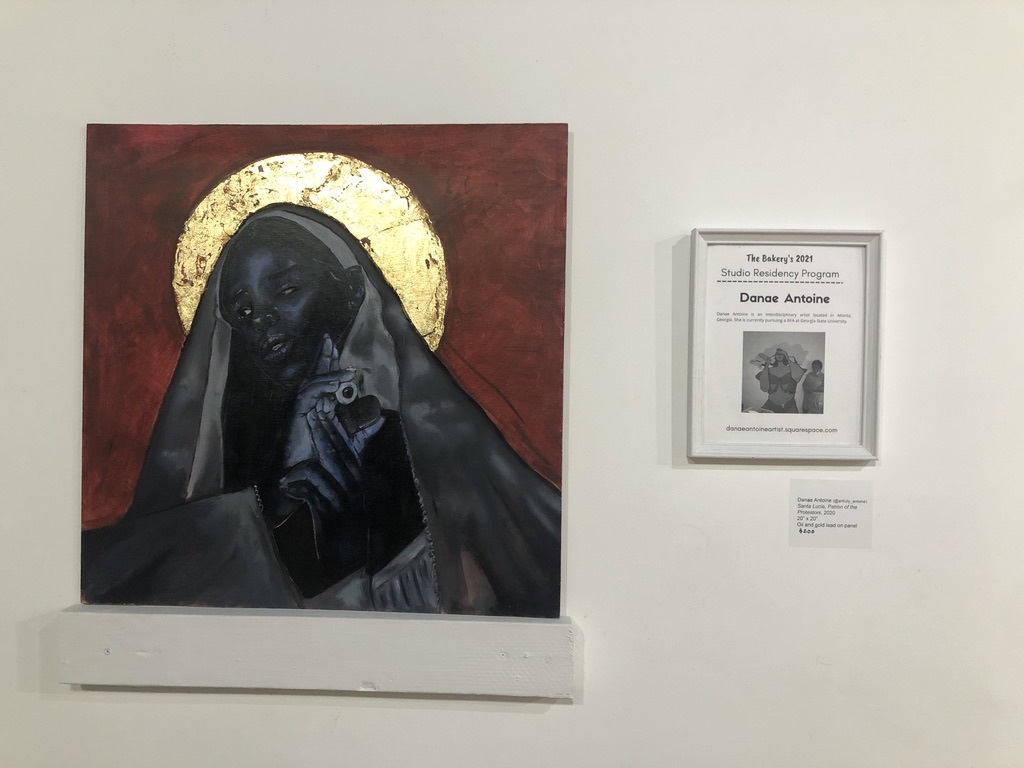
“Santa Lucia, Patron Saint of Protesters” By Danae Antoine, 2020. (The Emory Wheel/Zimra Chickering)
Ultimately, The Bakery succeeds as a small yet powerful gallery space, encompassing their goals of growth, activism, transparency and accountability. The exhibition represented the future of art, both in the works displayed and in the way the gallery was set up: quirky and casual. These are the ways in which our generation plans to transform and utilize art to express the truths, struggles and harmful systems around us.
Zimra Chickering (24C) is a born and raised Chicagoan who studies art history and nutrition science. She is also a student docent for the Michael C. Carlos Museum, Woodruff JEDI Fellow, educational committee chair for Slow Food Emory, and Xocolatl: Small Batch Chocolate employee. Zimra loves cooking, visiting art museums, photography, doing Muay Thai, drinking coffee, and grocery shopping. She uses writing as an outlet to reflect upon issues and oppurtunities within artistic institutions, and the unique ways in which food and art can act as communicators of culture.

